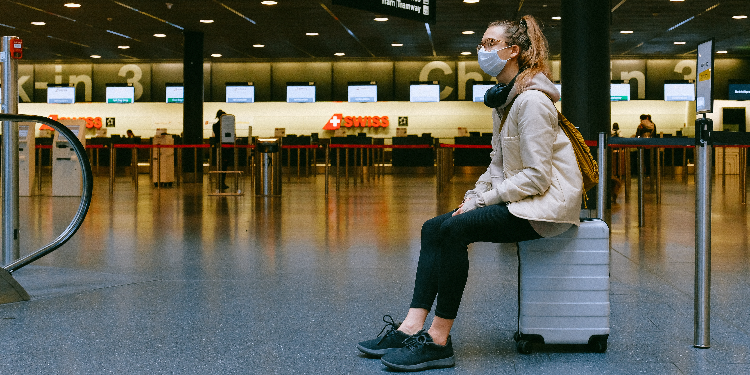
To facilitate travel within the European Union, the European Commission is considering the introduction of a Covid passport. But Europeans and expatriates, in particular, have mixed feelings about this proposal. They shared their views with us.
Philippe, a French expatriate in Thailand, doesn't quite grasp the idea of introducing a COVID passport. "To date, all we know is that the Covid vaccine works like the flu vaccine. So vaccinated people become asymptomatic, but that does not mean they cannot transmit the virus! In other words, you can't accept a passenger, assuming that they won't spread the virus just because they are vaccinated. Also, what about people who have antibodies?". For him, it would be more logical to speak of an “immunity passport” first, instead of a “Covid passport”. Philippe believes that being vaccinated doesn't guarantee that you can't transmit the virus. "Since they have been vaccinated, they will feel safe with their Covid passport and, won't necessarily understand that they can still transmit the virus like any other person. Remember that people choose to be vaccinated to protect themselves (as in the case of the flu) but that does not mean that they are protecting the people around them".
Philippe stresses on the current situation in Thailand. In fact, we mentioned it last week in our article “Has Thailand lost its appeal for expatriates?". To revive its tourism industry, Thailand is considering the introduction of the Covid passport once it reopens its borders completely. Holders of a Covid passport, which is a digital document certifying that they got PCR tests done and had their two COVID-19 vaccine doses, won't be quarantined upon their arrival in Thailand. But Philippe qualifies this decision as being absurd. “Regarding PCR tests, results (or any other information such as name or date ...) can be modified easily on the PDF document emailed by the laboratory. In France, moreover, you can get a PCR test done with a false identity as it's the person who is getting tested who fills out the datasheet ”. So it's clear, for him, that knowing the effectiveness of vaccines is crucial before introducing a Covid passport. He adds that it's also important to decide which vaccine will be taken into consideration since there are many, and the efficiency of some of them has been disputed.
Théo, a French expat in the Netherlands, shares Philippe's views. He believes that if the European Commission moves on the introduction of the Covid passport, “only government bodies, medical services, or other bodies such as the customs division or the border police, should be able to access this kind of data. Otherwise, it can be considered as a violation of our rights”. But as we mentioned above, this issue breeds mixed feelings.
Marie, an expat in Tunisia, doesn't see the harm in having a Covid passport. “When I first started travelling, smallpox, cholera, rabies, yellow fever vaccines, etc., were compulsory in certain countries. We were given an international vaccination certificate in the form of a (yellow) passport that we had to present to the airline company and to the border police on our arrival", she says.
Gisèle, who currently lives in Morocco, concedes that this issue is not likely to get unanimity. “Personally, as a regular traveller between two continents, I won't have a choice if the Covid passport becomes compulsory. I'm neither for nor against, but taking into account my travel obligations, I definitely have to take the vaccine and get a Covid passport. But I believe that everyone is free to choose even if opposing the Covid passport can lead to fraud or deprivation of liberty ”. Jean-Luc, an expat in Germany, also supports the Covid passport. "There's no risk since it will be a digital health passport and, therefore, registered. The virus will circulate for a couple of years anyway, so we can get vaccinated every year if need be, as we do with flu," he says.
How will having a Covid passport help?
While France and Germany believe that it is still early to talk about a Covid passport and that this could prove to be discriminatory against some people, other European countries are seriously considering its implementation. In fact, the United Kingdom, Greece, Cyprus, Sweden and Denmark, are planning to introduce the Covid passport before summer vacation. Several major airlines around the world have also started integrating this concept into their contactless procedures. Interestingly, a couple of non-European countries seem keener on introducing the Covid passport to kickstart their travel and tourism industry.
Last week, Malaysia launched "Immunitee". Initially, this Covid passport will be useful for travellers to Singapore. Its system includes the traveller's health history, namely PCR tests and vaccinations. "Immunitee" has a QR code that can only be scanned by government authorities or other organisations such as healthcare providers, immigration departments, hotels and even universities in the case of international students. In the Middle East, Bahrain is the first country to have successfully launched its Covid passport.
The UK is considering making the Covid passport compulsory even for local travels. The Covid passport could, therefore, be integrated into the current NHS app. With this app installed on their mobile phone, people will thus be able to prove that they had PCR tests done and that they have been vaccinated. However, they might also need to produce their Covid passport even to access bars or stadiums, for example. Still, no decision will be taken until June 21, when the country enters the fourth phase of the unlock plan.
The European Commission has already pledged not to rush into any decision until the majority of European citizens have been vaccinated. While the health passport is expected to make travel formalities smoother in the coming months, the European Commission reassured that Covid passport holders won't be the only ones allowed to travel.



















